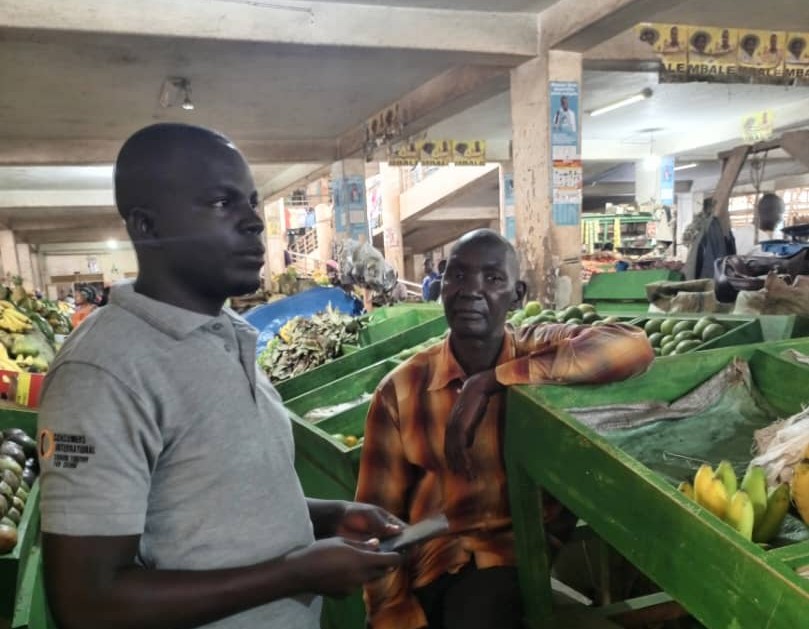APRIL, 2025, The Global Consumer Centre (CONSENT) embarked on a comprehensive evaluation of its interventions under the Good Food for Cities (GF4C) project, which has been implemented in partnership with RIKOLTO, FRA, and Mbale City leadership since 2021. This initiative aims to ensure sustainable food systems by promoting food safety, customer care, financial management, and market governance among stakeholders.
The evaluation focused on assessing the adoption of food safety practices, utilization of financial and customer care skills, and the overall impact of CONSENT’s interventions over the past four years.
Evaluation Methodology
The evaluation employed in-depth interviews with beneficiaries trained under the GF4C project. These included market vendors and leaders who have been equipped with knowledge and skills to improve food handling practices, maintain market order, and enhance governance structures.
Focus Areas
The evaluation centered on three critical aspects:
1. Adoption of Food Safety Practices: Assessing how vendors and leaders have implemented safe food handling techniques to mitigate contamination risks.
2. Utilization of Financial and Customer Care Skills: Measuring how training in financial management and customer service has contributed to business growth and consumer satisfaction.
3. Impact Assessment: Evaluating the broader effects of CONSENT’s interventions on market operations, stakeholder collaboration, and consumer protection within Mbale City.
Preliminary Findings
While data analysis is still underway, preliminary observations indicate significant improvements in food safety awareness among vendors and leaders. Many beneficiaries reported adopting better hygiene practices and implementing customer care strategies that have enhanced their businesses. Market leaders highlighted improved governance structures and sanitation standards as direct outcomes of CONSENT’s training programs.
Challenges Identified
Despite these achievements, challenges persist in enforcing regulatory frameworks for food safety across all markets in Mbale City. Limited infrastructural development and gaps in consumer education remain key areas requiring attention.
Next Steps
CONSENT is currently analyzing the collected data, with plans to share detailed findings with stakeholders for informed decision-making. The insights will guide future interventions aimed at scaling up food safety awareness campaigns, expanding training programs for vendors and leaders, and advocating for stronger regulatory enforcement by government authorities.
Commitment to Sustainable Food Systems
As CONSENT Chief Executive Henry Kimera emphasized during the evaluation process, “Safe and nutritious food is not just a necessity, it is a cornerstone for sustainable development.” CONSENT remains committed to driving transformative change in Mbale’s urban food environment through strategic partnerships and capacity-building initiatives.
This evaluation reaffirms CONSENT’s dedication to ensuring that Mbale City becomes a model for safe and sustainable food systems that benefit vendors, consumers, and policymakers alike.

